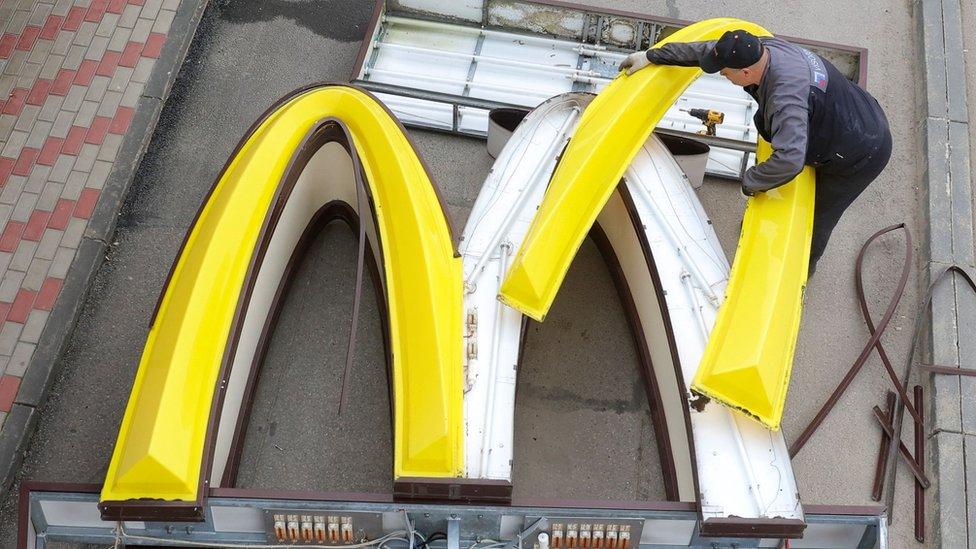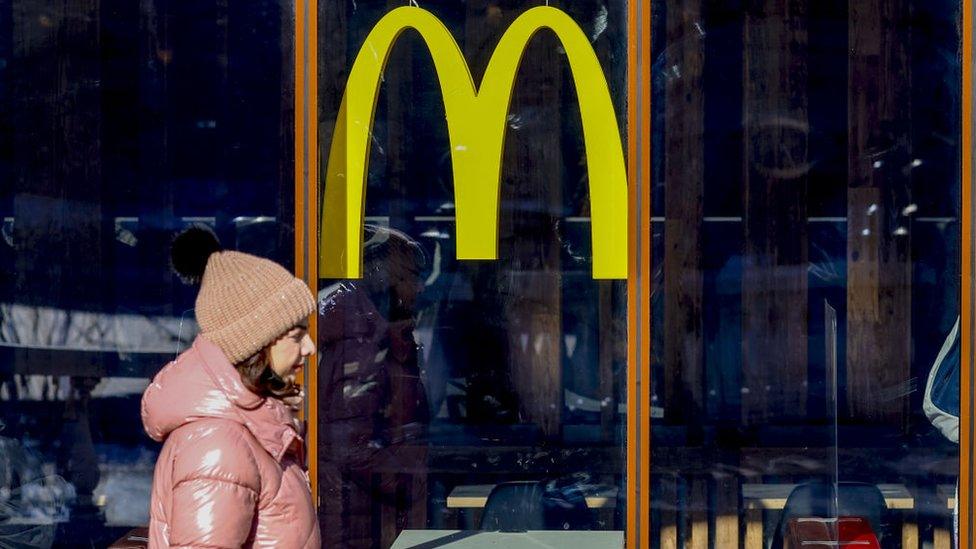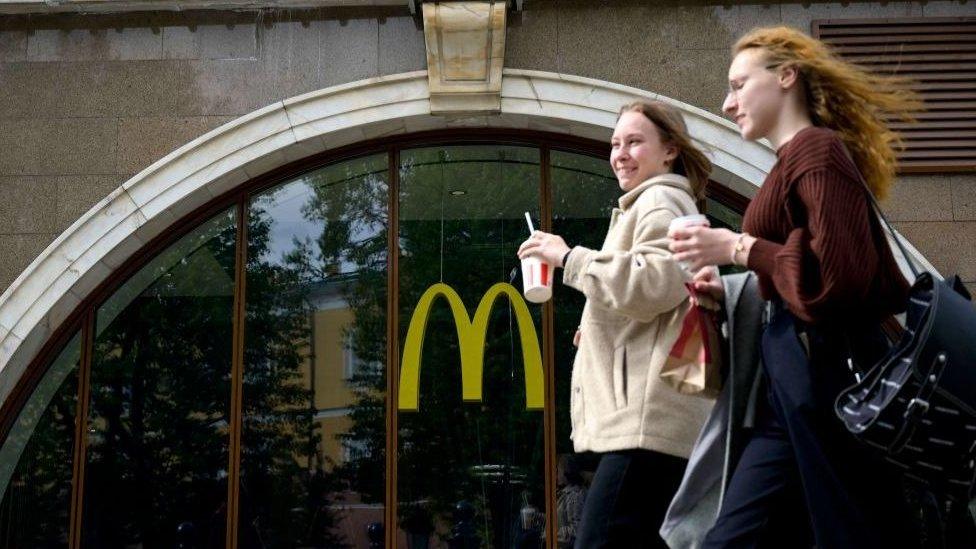Russia's McDonald's replacement runs low on fries
- Published

Several people queued up to Vkusno i Tochka's opening in Moscow following McDonald's departure from Russia after 30 years
Some restaurants in the newly opened "Tasty and that's it" fast food chain, which replaced McDonald's in Russia, will temporarily stop serving fries, according to Russian media.
A shortage of the correct variety of potatoes means diners will have to find a different side dish to accompany their burgers and nuggets.
The company says it expects to have fries back on the menu by autumn.
McDonald's pulled out of Russia in protest at the invasion of Ukraine.
The American fast food giant sold its restaurants to a Russian businessman, and in June several of its outlets reopened under the name "Vkusno i Tochka", which translates as "Tasty and that's it".
But a month after opening, one of the key items on the menu is in short supply. "Rustic potatoes" - a thicker-cut version of the traditional French fry - may also be unavailable.
In a statement to Russian news agency Tass, the company explained that 2021 yielded a poor harvest for the variety of potato needed to make fries.
It said that the company generally tried to source potatoes from Russian producers, but that it had also become impossible to import potatoes from markets that could offer a temporary replacement to the domestic crop.
However, in a statement on Telegram titled "There are potatoes - and that's it", Russia's agriculture ministry sought to play down any concerns over a potato shortage.
"The Russian market is fully supplied with potatoes, including processed ones. In addition, crops from the new harvest are already arriving, which rules out the possibility of a shortage," the ministry said.
McDonald's opened its first restaurant in Moscow in 1990, a sign of Soviet Russia forming closer economic and cultural ties with the West.
But more than three decades later, the American icon pulled out of Russia along with dozens of other Western companies, in protest at Russia's invasion of Ukraine.
Russia is now under wide-ranging Western sanctions, which are disrupting supply chains and increasing unemployment.
The Russian economy is expected to shrink by up to 10% in 2022.
Watch: Moscow residents react to McDonald's leaving Russia after 30 years
Related topics
- Published10 June 2022

- Published17 May 2022

- Published19 May 2022
